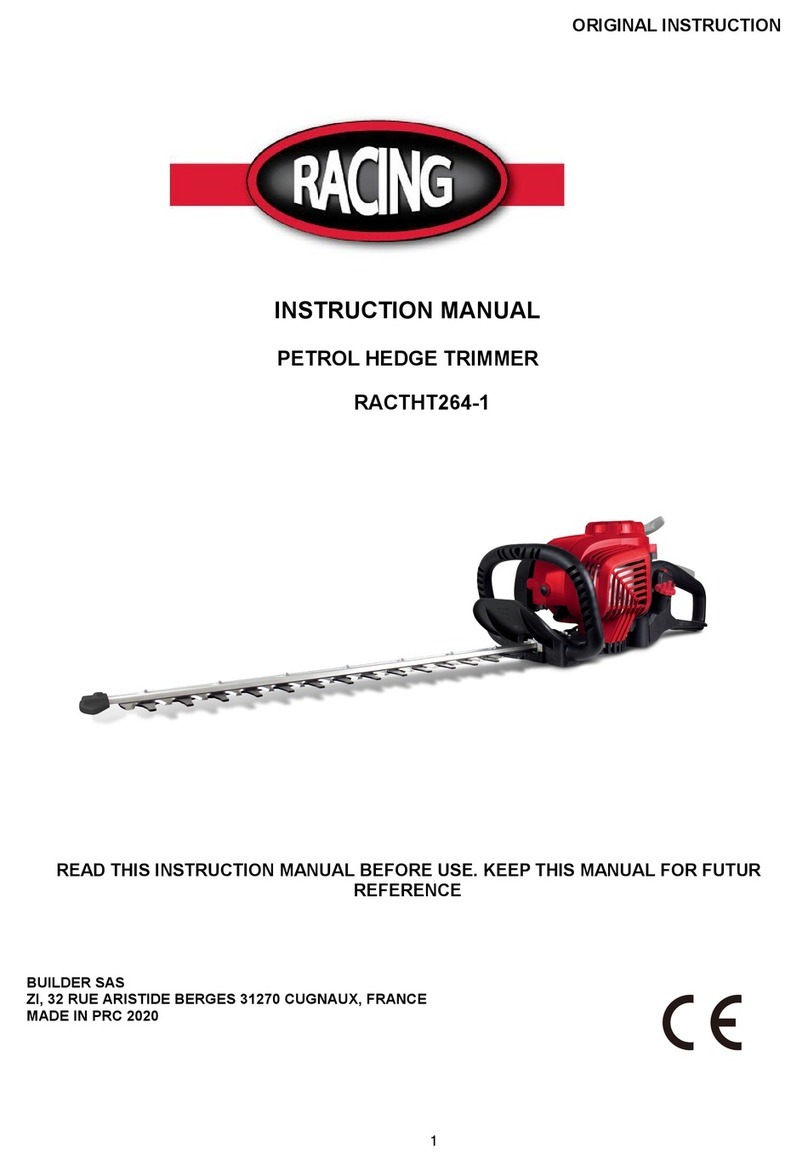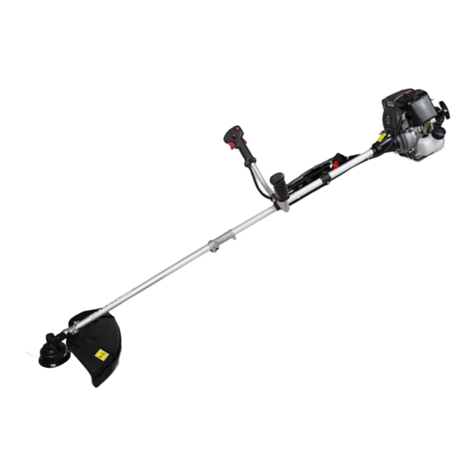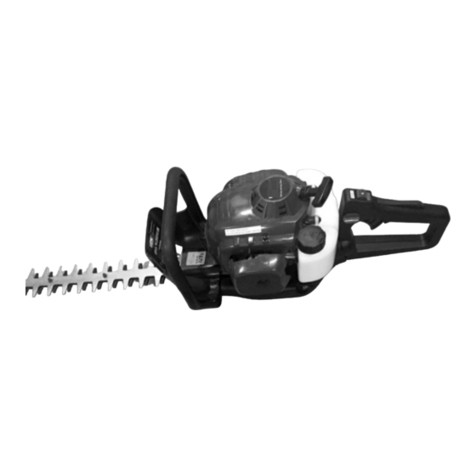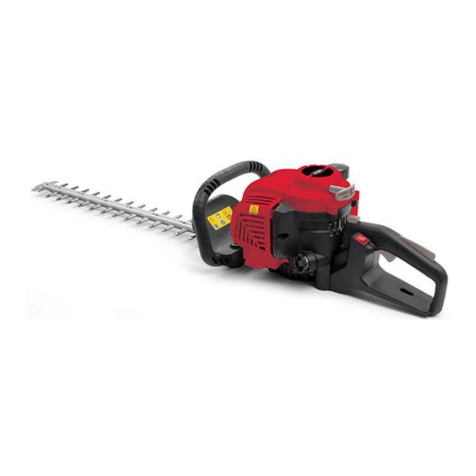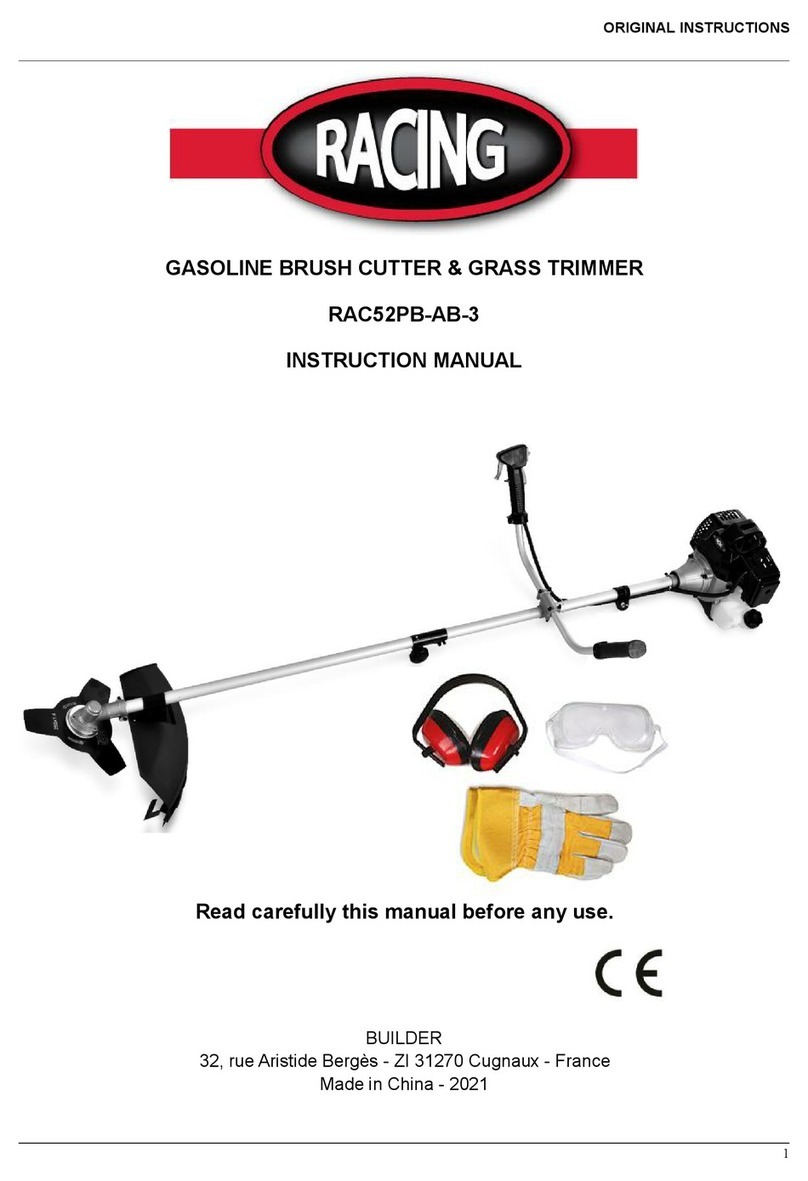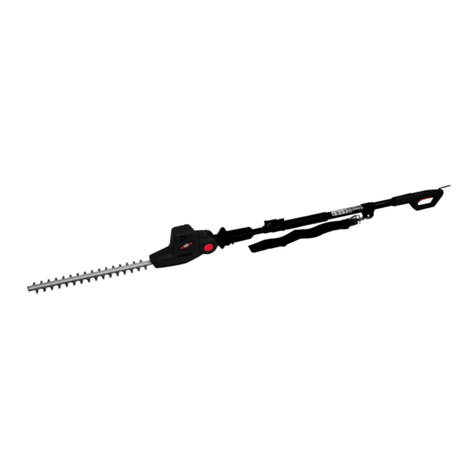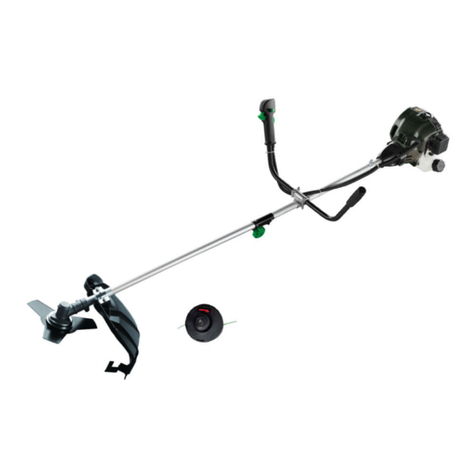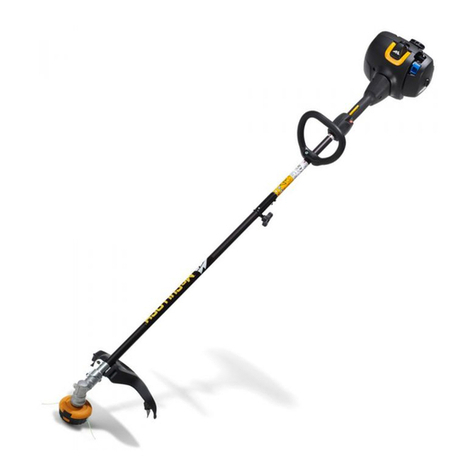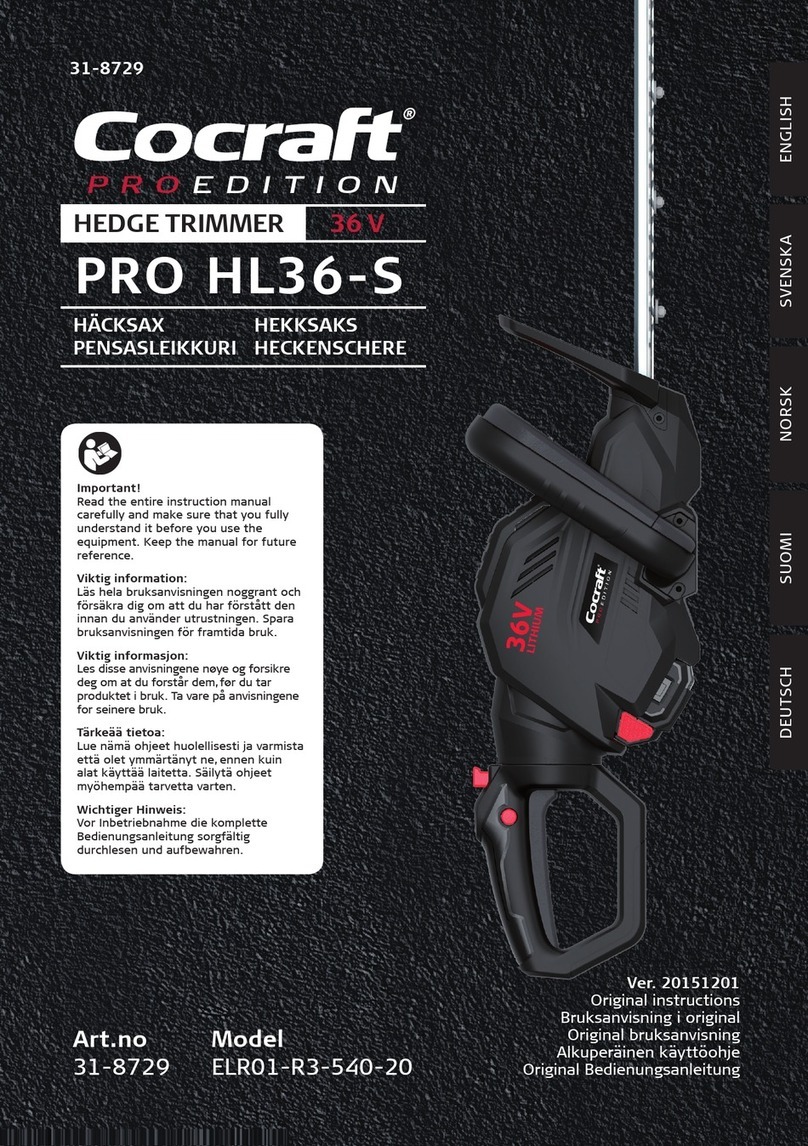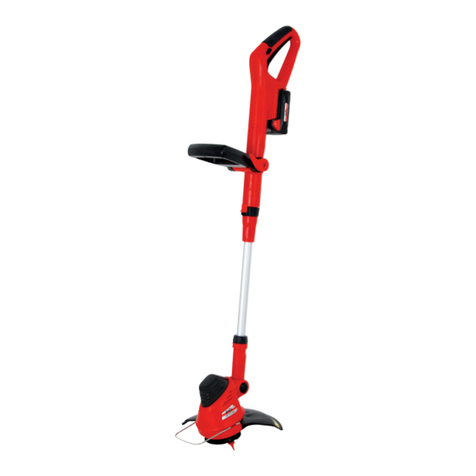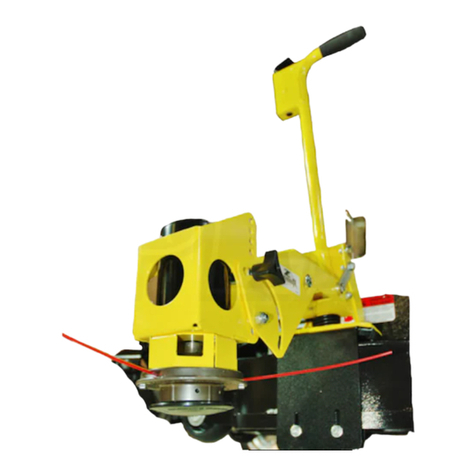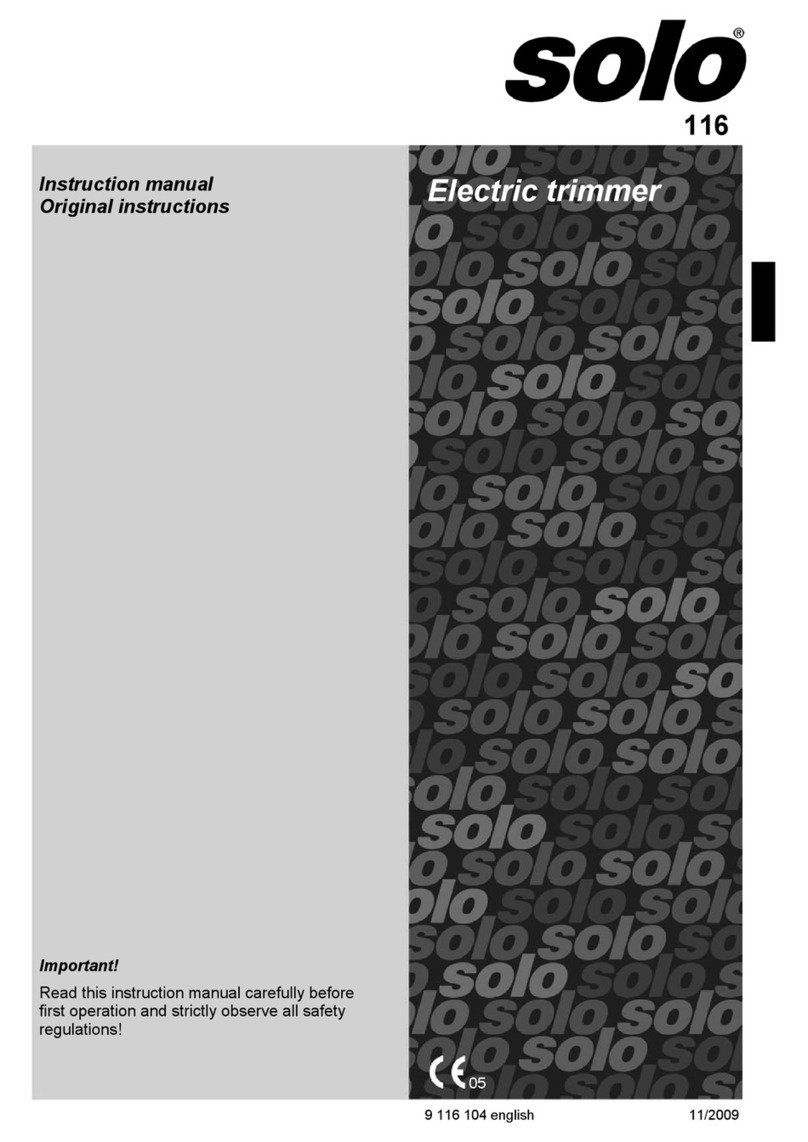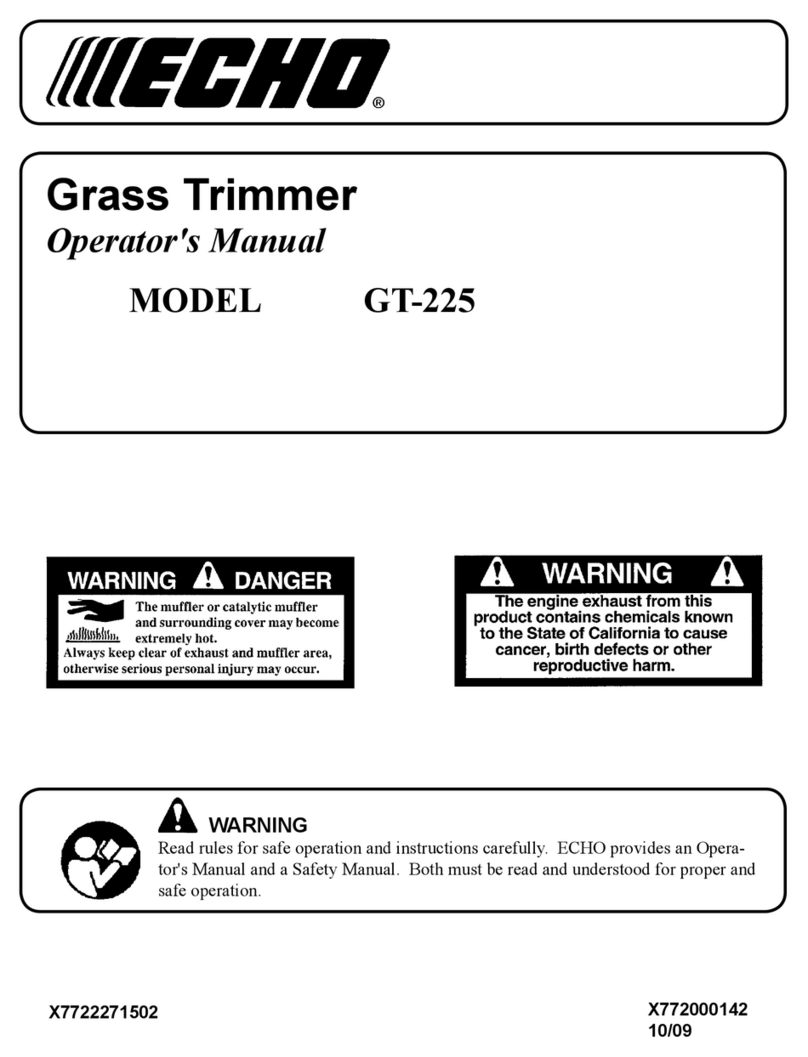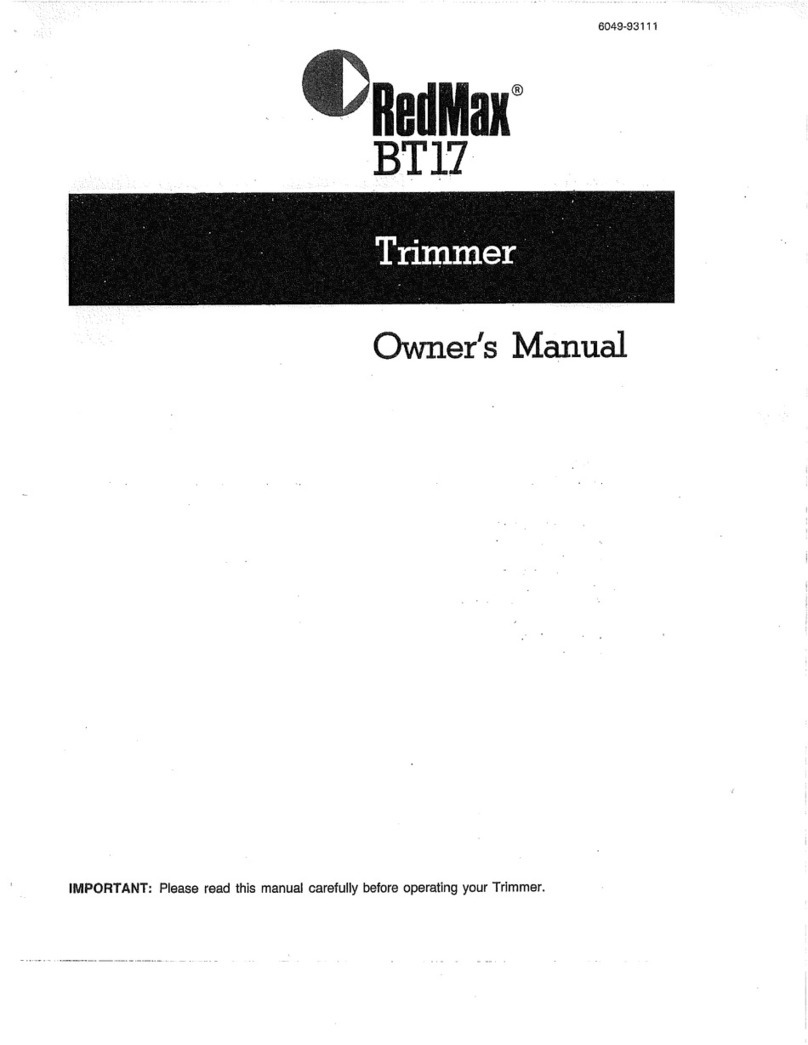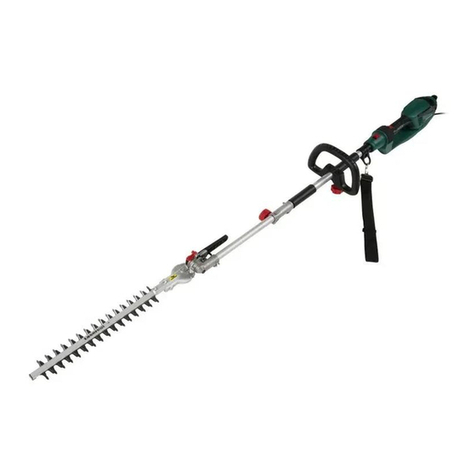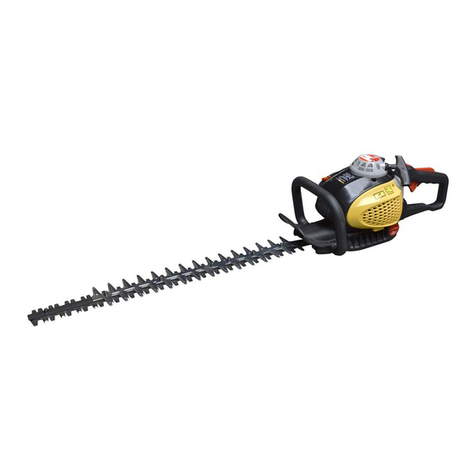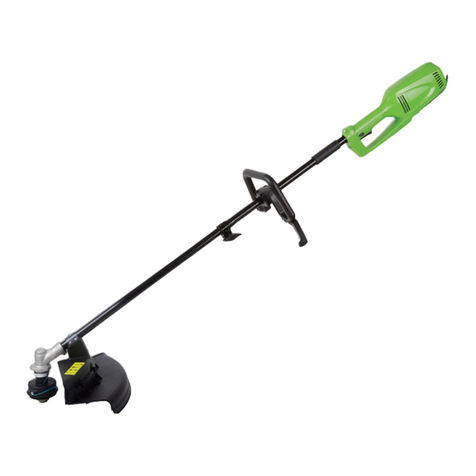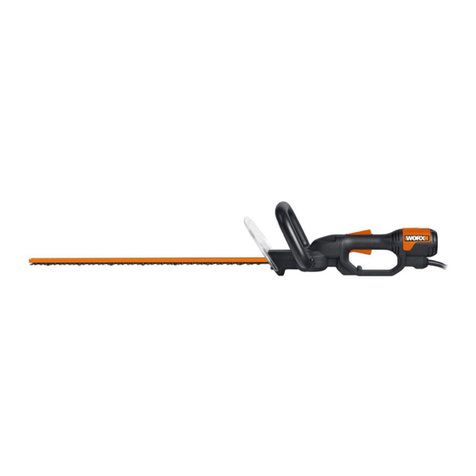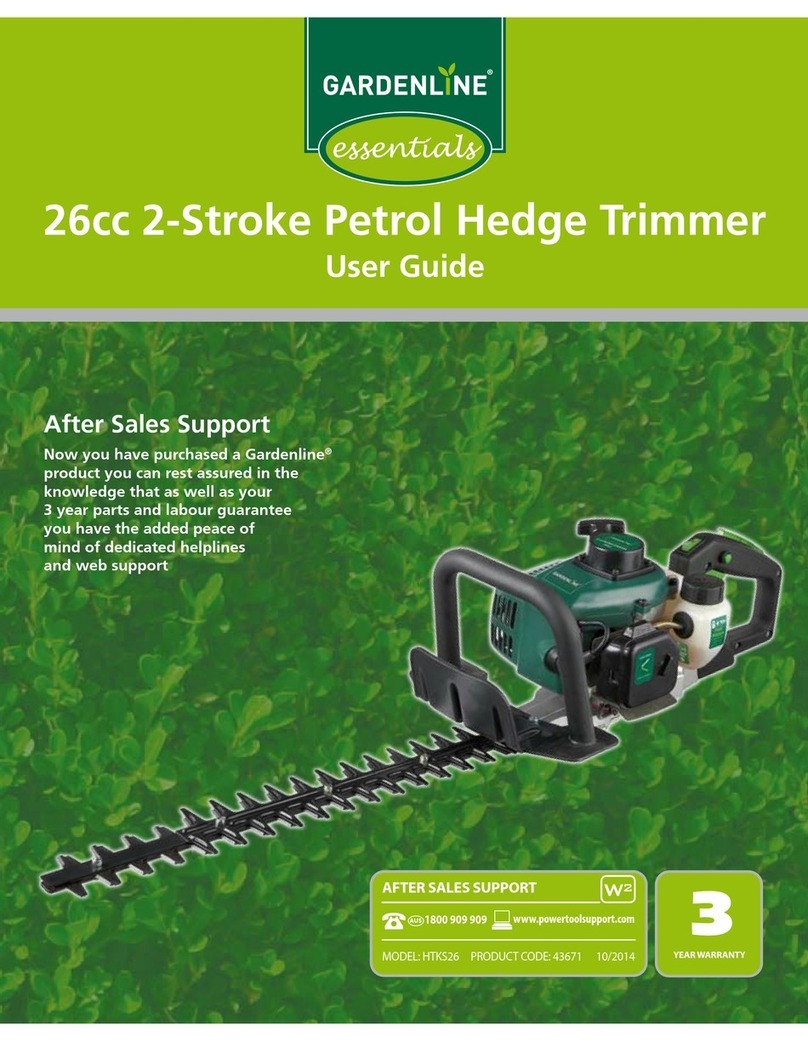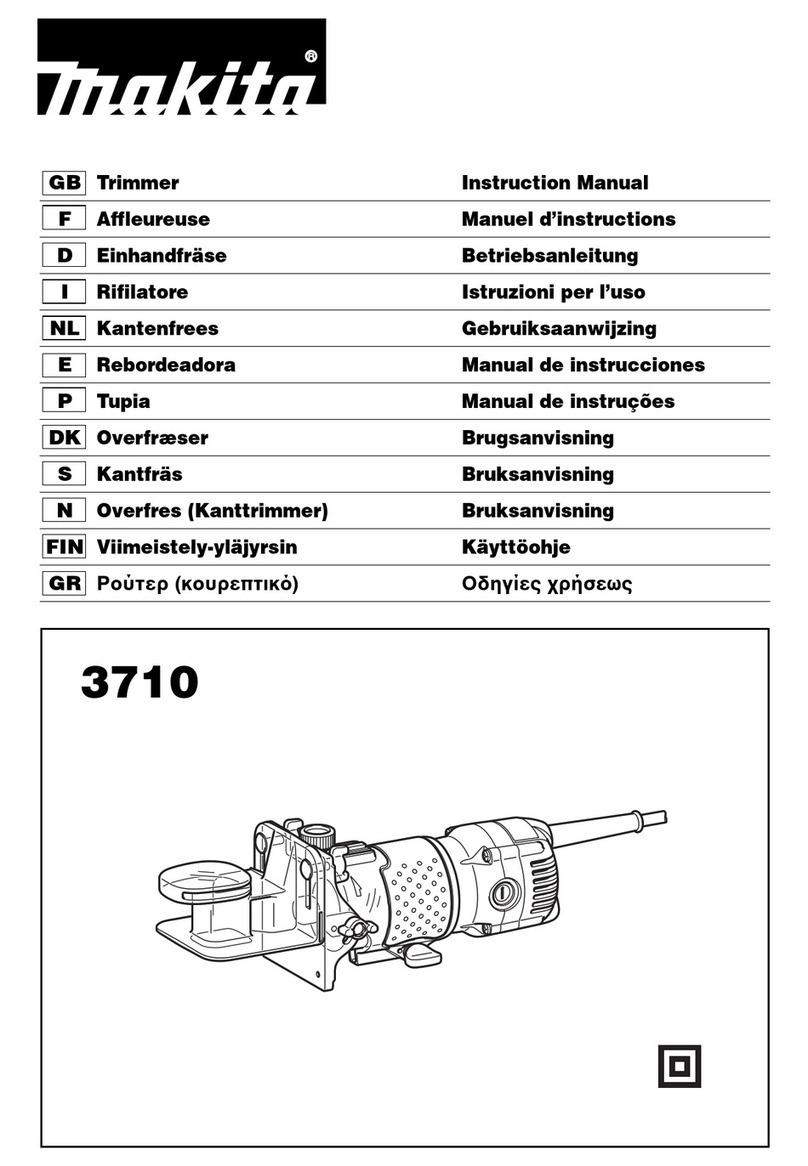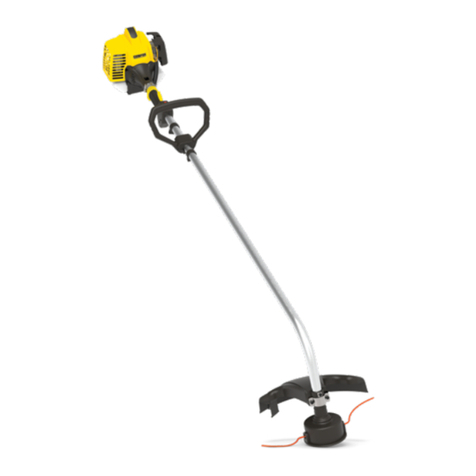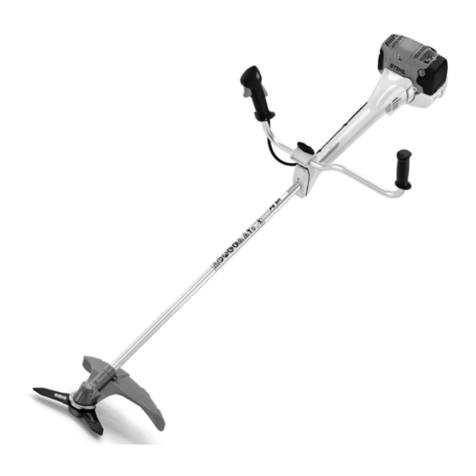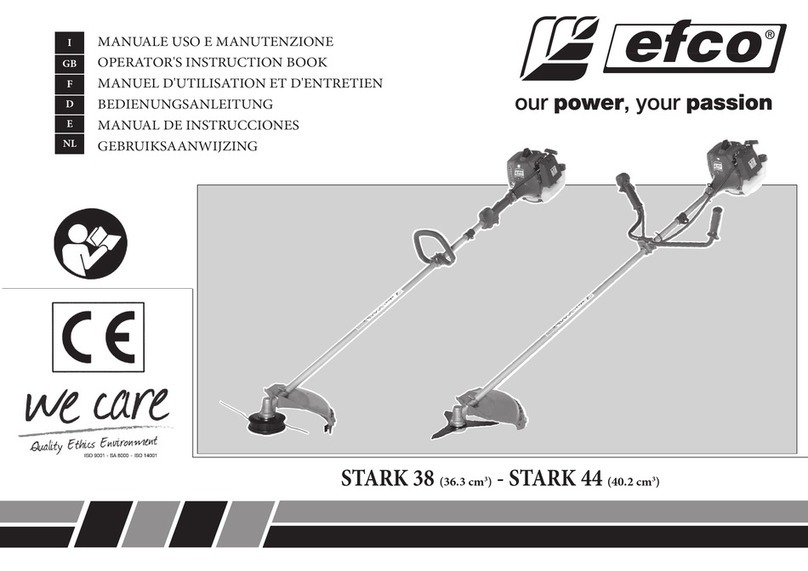
2
of those materials before starting the engine.
Stay clear of other workers or bystanders by at least 15 meters/50 feet.
Whenever approaching an operator of the machine, carefully call his attention and confirm that
the operator stop the engine. Be careful not to startle or distract the operator which can cause an
unsafe situation.
Never touch the nylon cutting head or blade when ever the engine is running. If it is necessary to
replace the protector or cutting attachment, be sure to stop the engine and confirm that the
cutting device has stopped running.
The engine should be turned off when the machine is moved between work areas
Be careful not to hit the nylon cutting head against stones, or the ground.
Unreasonable rough operation will shorten the life of the machine as well as create an unsafe
environment for yourself and those around you.
Pay attention to loosening and overheating of parts. If there is any abnormality of the machine,
stop operation immediately and check the machine carefully. If necessary, have the machine
serviced by an authorized dealer. Never continue to operate a machine which may be
malfunctioning.
In start-up or during operation of the engine, never touch hot parts such as the muffler, the high
voltage wire or the spark plug.
After the engine has stopped, the muffler is still hot. Never place the machine in any places
where there are flammable materials (dry grass, etc.), combustible gasses or combustible
liquids.
Pay special attention to operation in the rain or just after the rain as the ground may be slippery.
If you slip or fall to the ground or into a hole, release the throttle lever immediately.
Be careful not to drop the machine or hit it against obstacles.
Before proceeding to adjust or repair the machine, be sure to stop the engine and detach the
spark plug.
When the machine is placed in storage for a long time, drain fuel from the fuel tank and
carburetor, clean the parts, move the machine to a safe place and confirm that the engine is
cooled down.
Make periodic inspections to assure safe and efficient operation. For a thorough inspection of
your machine, please contact a dealer.
Keep the machine away from fire or sparks.
It is believed that a condition called Raynaud ’s phenomenon, which affects the fingers of certain
individuals, may be brought about by exposure to vibration and cold. loss of color and numbness
in the fingers. The following precautions are strongly recommended because the minimum
exposure which might trigger the ailment is unknown.
Keep your body warm, especially the head, neck, feet, ankles, hands and wrists.
Maintain good blood circulation by performing vigorous arm exercises during frequent work
breaks and also by not smoking.
Limit the hours of operation. Try to fill each day with jobs where operating the brush cutter or
other hand-held power equipment is not required.
If you experience discomfort, redness and swelling of the fingers followed by whitening and loss
of feeling, consult your physician before further exposing yourself to cold and vibration.
Always wear ear protection, loud noise for long time can make hearing debase even lost
hearing.
Total face and head protection must be wear to prevent damage from plummet or branch.
Wear no-slip heavy duty work gloves to improve your grip on the brush cutter handle. Gloves
also reduce the transmission of machine vibration to your hands.
WARNING: The cutter area is still dangerous while the machine is coasting to a stop.
When transport, this unit must be handled carefully. Do not expose yourself or others to danger.
